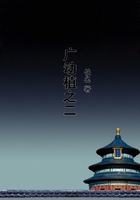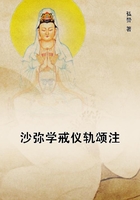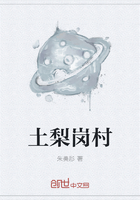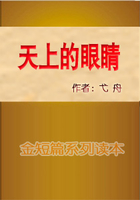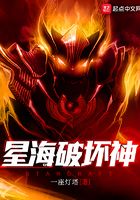It is certain that the mind becomes atrophied in a defective body. Quasimodo was barely conscious of a soul cast in his own image, moving blindly within him. The impressions of objects underwent a considerable refraction before reaching his mind. His brain was a peculiar medium; the ideas which passed through it issued forth completely distorted. The reflection which resulted from this refraction was, necessarily, divergent and perverted.
Hence a thousand optical illusions, a thousand aberrations of judgment, a thousand deviations, in which his thought strayed, now mad, now idiotic.
The first effect of this fatal organization was to trouble the glance which he cast upon things. He received hardly any immediate perception of them. The external world seemed much farther away to him than it does to us.
The second effect of his misfortune was to render him malicious.
He was malicious, in fact, because he was savage; he was savage because he was ugly. There was logic in his nature, as there is in ours.
His strength, so extraordinarily developed, was a cause of still greater malevolence: "~Malus puer robustus~," says Hobbes.
This justice must, however be rendered to him. Malevolence was not, perhaps, innate in him. From his very first steps among men, he had felt himself, later on he had seen himself, spewed out, blasted, rejected. Human words were, for him, always a raillery or a malediction. As he grew up, he had found nothing but hatred around him. He had caught the general malevolence. He had picked up the weapon with which he had been wounded.
After all, he turned his face towards men only with reluctance; his cathedral was sufficient for him. It was peopled with marble figures,--kings, saints, bishops,--who at least did not burst out laughing in his face, and who gazed upon him only with tranquillity and kindliness. The other statues, those of the monsters and demons, cherished no hatred for him, Quasimodo. He resembled them too much for that.
They seemed rather, to be scoffing at other men. The saints were his friends, and blessed him; the monsters were his friends and guarded him. So he held long communion with them. He sometimes passed whole hours crouching before one of these statues, in solitary conversation with it. If any one came, he fled like a lover surprised in his serenade.
And the cathedral was not only society for him, but the universe, and all nature beside. He dreamed of no other hedgerows than the painted windows, always in flower; no other shade than that of the foliage of stone which spread out, loaded with birds, in the tufts of the Saxon capitals; of no other mountains than the colossal towers of the church; of no other ocean than Paris, roaring at their bases.
What he loved above all else in the maternal edifice, that which aroused his soul, and made it open its poor wings, which it kept so miserably folded in its cavern, that which sometimes rendered him even happy, was the bells. He loved them, fondled them, talked to them, understood them.
From the chime in the spire, over the intersection of the aisles and nave, to the great bell of the front, he cherished a tenderness for them all. The central spire and the two towers were to him as three great cages, whose birds, reared by himself, sang for him alone. Yet it was these very bells which had made him deaf; but mothers often love best that child which has caused them the most suffering.
It is true that their voice was the only one which he could still hear. On this score, the big bell was his beloved. It was she whom he preferred out of all that family of noisy girls which bustled above him, on festival days. This bell was named Marie. She was alone in the southern tower, with her sister Jacqueline, a bell of lesser size, shut up in a smaller cage beside hers. This Jacqueline was so called from the name of the wife of Jean Montagu, who had given it to the church, which had not prevented his going and figuring without his head at Montfau?on. In the second tower there were six other bells, and, finally, six smaller ones inhabited the belfry over the crossing, with the wooden bell, which rang only between after dinner on Good Friday and the morning of the day before Easter. So Quasimodo had fifteen bells in his seraglio; but big Marie was his favorite.
No idea can be formed of his delight on days when the grand peal was sounded. At the moment when the archdeacon dismissed him, and said, "Go!" he mounted the spiral staircase of the clock tower faster than any one else could have descended it. He entered perfectly breathless into the aerial chamber of the great bell; he gazed at her a moment, devoutly and lovingly; then he gently addressed her and patted her with his hand, like a good horse, which is about to set out on a long journey. He pitied her for the trouble that she was about to suffer. After these first caresses, he shouted to his assistants, placed in the lower story of the tower, to begin. They grasped the ropes, the wheel creaked, the enormous capsule of metal started slowly into motion.

